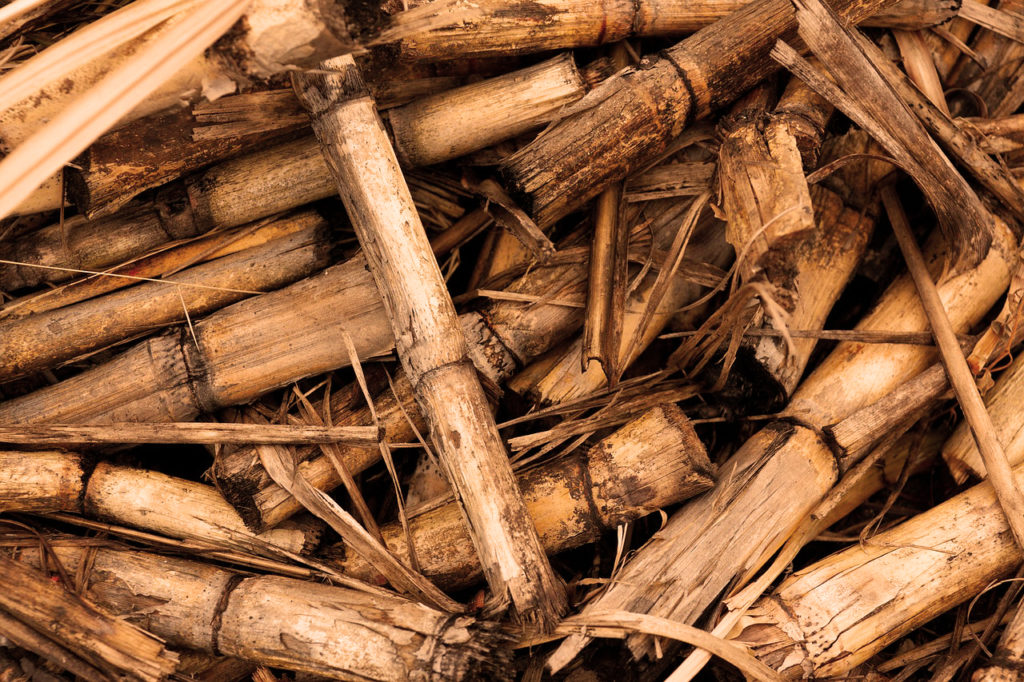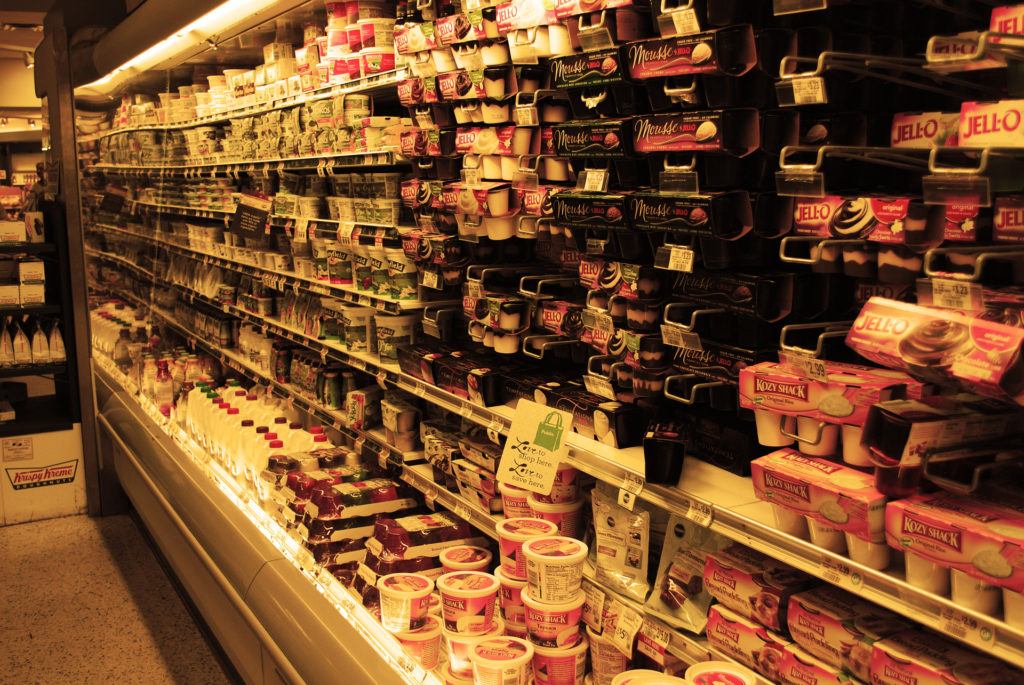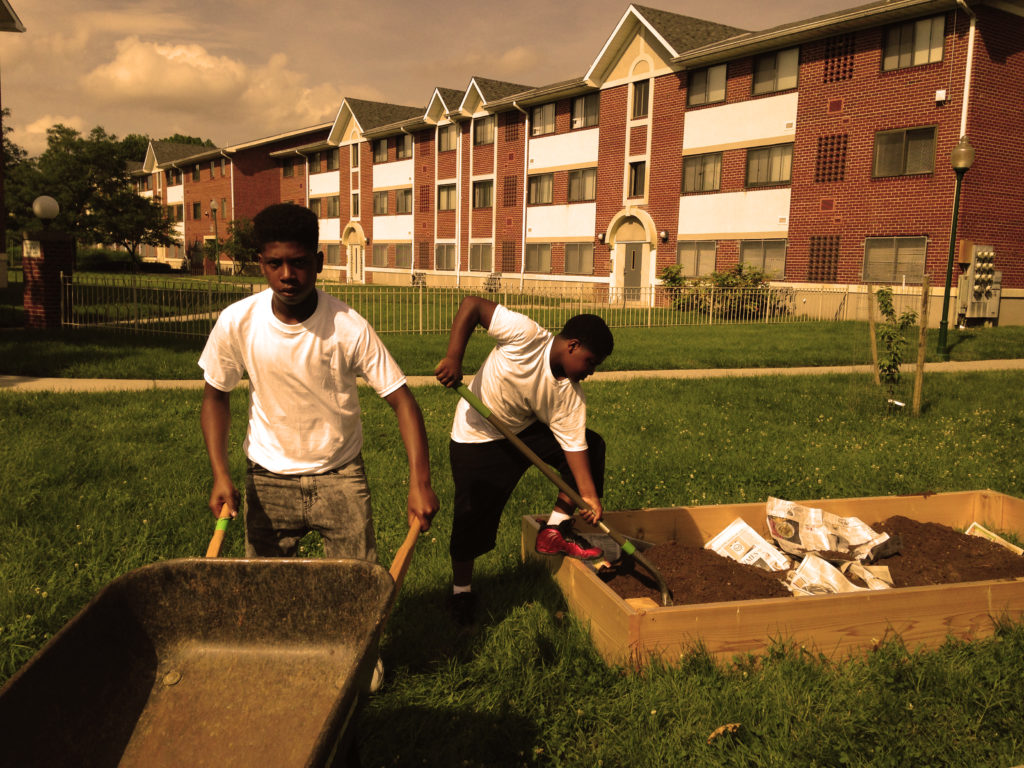Growing Justice: Transcending the Oppressive History of Our Food System
PARADIGM CHANGES, 1 Aug 2016
Michelle Stearn | The Next System Project – TRANSCEND Media Service
 27 Jul 2016 – Marvin Brown’s Civic Economy of Provisions asks us to delve deep into the depths of our economic system’s history. Only then, he posits, will we be able to transform a structure based wholly in the violent exploitation and dehumanization of African people from the times of the trans-Atlantic slave trade to our current moment in history. We zoomed in on the food system, an industry that illustrates both the dark ironies of the global economy’s roots in slavery and exploitation, but also opportunities for a true departure from the current paradigm that—by design—oppresses the livelihoods of the individuals that make up the Black community.
27 Jul 2016 – Marvin Brown’s Civic Economy of Provisions asks us to delve deep into the depths of our economic system’s history. Only then, he posits, will we be able to transform a structure based wholly in the violent exploitation and dehumanization of African people from the times of the trans-Atlantic slave trade to our current moment in history. We zoomed in on the food system, an industry that illustrates both the dark ironies of the global economy’s roots in slavery and exploitation, but also opportunities for a true departure from the current paradigm that—by design—oppresses the livelihoods of the individuals that make up the Black community.
“The dominant belief that maximizing profits is the primary purpose of business has caused food retailers to leave communities in which they don’t think profits can be maximized. The result is that over 23 million Americans don’t have access to the choices and services offered by grocery stores.”
— Brahm Ahmadi, Co-founder and CEO of the People’s Community Market, a West Oakland-based holistic community grocery
Across the United States, people are waking up to new understandings of our collective history, creating a discourse around liberation from systemic oppression and connecting the dots between state-sanctioned violence and oppression of the Black community. This is the case of Marvin Brown, whose new work “A Civic Economy of Provisions” is part of the Next System Project’s series “New Systems: Possibilities and Proposals.” In his piece, Brown starts by reminding us of the origins of our capitalist system: the initiation of the trans-Atlantic trade of the 15th through 18th centuries. He highlights the changes that took place in the pervasive theories of property and property relations during this time, as the proponents of the new economic practices needed to justify their distinctly inhumane labor practices (namely, the enslavement of millions of Africans) in order to feed the addictions generated by their new global system—an international economy fueled by mass cultivation and consumption of cash crops such as sugar, tobacco, cotton, and alcohol.
With the advent of a new global economy, then-novel theories emerged to perpetuate the perception of property and ownership of the colonial era. Adam Smith and his cohorts’ postures, for instance, helped rationalize the enslavement of millions of African people—the true “invisible hands” of capitalism. Invisible, so to speak, insofar as they guided the economy toward prosperity and growth—at least for those who owned the property, both human and non-human.
The outcomes of this pervasive system continue to be felt today, despite the abolition of slavery and the victories of 1960’s civil rights movement, not to mention the countless efforts by activists and community members who laid the groundwork for the struggle for equality and liberation of Black Americans. Despite this tireless work, Black Americans are repetitively faced with the illegal death of their peers at the hands of structural police violence and the disproportional incarceration rates—issues becoming increasingly visible to the national and international mainstream thanks to the #BlackLivesMatter movement. But the reality is that growing inequality and injustice against people of color is rooted in all systems in place today, catalyzing the erasure of the country’s history.
The state and federal policies rooted in the mass exploitative cultivation of tobacco, sugar, alcohol, and cotton cause a “major disconnect between Black folks and good food, and similarly, our history.”
—Laura Penniman, farmer and educator at Soul Fire Farm in Albany, NY.
The Movement for Black Lives is one among many uprisings to address systemic oppression. Another system in particular has gained growing concern over the years: the food system. Slavery and exploitation formed the impetus for thriving food and agriculture systems in the United States; now, morphed to adapt to a post-industrial era, these systems continue to perpetuate inequality and oppression. The state and federal policies rooted in the mass exploitative cultivation of tobacco, sugar, alcohol, and cotton cause a “major disconnect between Black folks and good food, and similarly, our history,” as explained by Leah Penniman, farmer and educator Soul Fire Farm in Albany, New York. The result? These policies ensure that the descendants of the labor force responsible for producing cash crops for European traders—Black and indigenous Americans—are disproportionately affected by diet-related diseases. In fact, by design of the system, diet-related illnesses are the top five killers for people of color in the United States. As Penniman put it on a recent Laura Flanders segment on racism in the food system, “We’re living in the South end of Albany, which the USDA terms a ‘food desert’ neighborhood. But we prefer to talk about ‘food apartheid,’ because deserts are natural phenomenon, and racism in the food system is very unnatural.”
Those who built the foundations of the modern food and agriculture systems by cultivating crops for mass consumption are now deliberately excluded from the empire they helped construct. Can this dark irony embedded in the food system be replaced by a system that grows justice along with our food? Marvin Brown believes so. In “A Civic Economy of Provisions,” he asks us to dive down to the depths of our history’s roots in order to cultivate a new transformative paradigm of social, political, and economic organization. In the same way that the global consciousness came to adopt the conception that people could own other people as property, Brown notes that we can transform our collective consciousness to one based on shared wealth and common ideals. We can work for the common good and we can establish institutions built on restoring rights to all humans. But first, postures Brown, it will require us to change our conversations and interactions with one another in a “system of provision.”
How would a “system of provision” incorporate a consciousness about past circumstances that led to today’s high levels of inequality and exploitation, while simultaneously retaining an orientation toward a new economic paradigm for the future? Brown emphasizes that the entire system must be rooted in reciprocity and civic conversations as tools to create new institutions and systems, in order to dismantle the inequalities brought on by this consumptive system of commodity and trade. These “civic conversations” must encompass the realities of our history: not just the ones dictated by the owners of wealth and property, but instead by the oppressed producers themselves. “Facing this history,” he says, “and thus reconnecting with the real providers of wealth, is the only way out of the property-based economics of capitalism.”
Within the food system, one of Brown’s examples of a distinct sector intertwined with others to form a whole, we can identify how civic conversations manifest in the formation of new institutions to shift the focus from profit to provision, by providing holistically for the community and for the common good.
Transforming our system into one rooted in provision means more than just creating new organizations that aim to do well for the community; it will require that we rewrite the beliefs, exchanges, and rules of our own interactions.
Penniman of Soul Fire Farm highlights Black farmers across the U.S. that are, in the spirit of Brown’s society based on civic provisions, transforming their work to advance justice by harnessing and spreading the histories of their revered elders: “After more than a century of decline, the number of Black farmers is on the rise. These farmers are not just growing food, either. The ones you’ll meet here rely on survival strategies inherited from their ancestors, such as collectivism and commitment to social change. They infuse popular education, activism, and collective ownership into their work.” Similarly, Brown asserts that in a society based on “civic conversations,” we must attempt to alter the assumption that the economy is comprised of individual actors who act in their own selfish interest. We can do so by moving away from the mentality of ignorance against the “real producers of wealth,” and impeding the endurance of the dominant economic discourse that remains in “silence about the role of slaves in creating the wealth.”
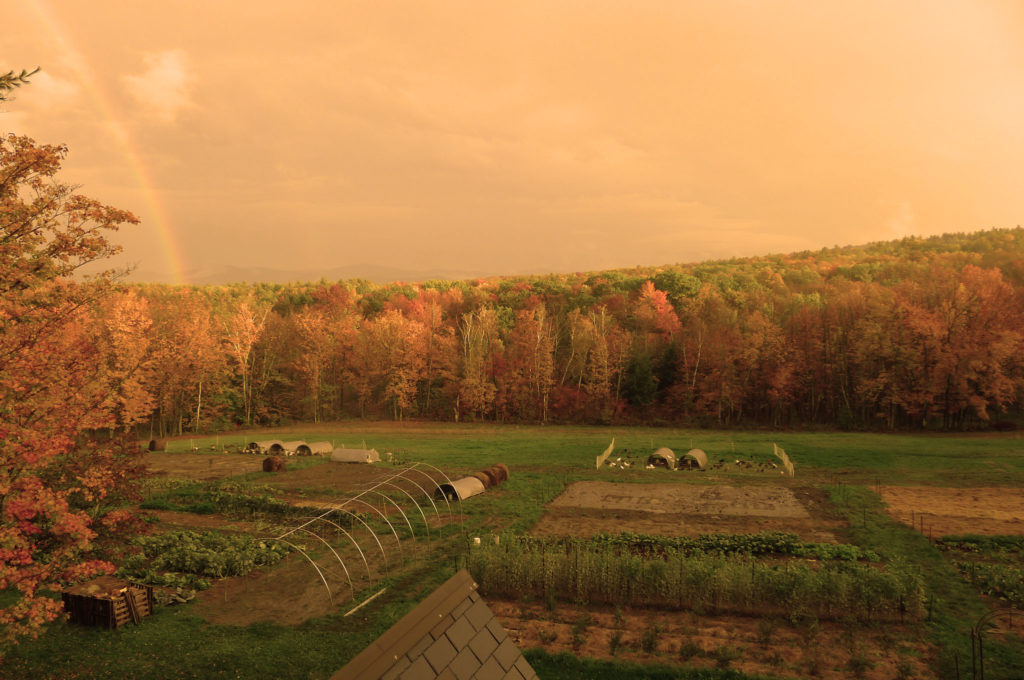
Soul Fire Farm is committed to ending racism and injustice in the food system by cultivating life-giving food and acting in solidarity with people marginalized by food apartheid.
Thus, transforming our system into one rooted in provision means more than just creating new organizations that aim to do well for the community; it will require that we rewrite the beliefs, exchanges, and rules of our own interactions, taking into account who benefits from historical outcomes and who suffers from them.
The People’s Community Market (PCM), an endeavor rooted in the Bay Area’s West Oakland neighborhood, has adopted a mission that also echoes the calls outlined in Brown’s piece. PCM’s mission is to provide a “full-service neighborhood food store, health resource center, and community hub that engages and supports West Oakland families to attain healthier and more socially connected lives.” They explicitly denounce the unchecked and unquestioned pursuit of profit as a cause of inequality and a result of an extractive capitalistic system that inherently feeds off the laboring class—those same “invisible hands” of slavery, now under the guise of unlivable wages and so-called “civil rights.” The PCM provides a direct challenge to the historical legacy of slavery and exploitative status quo that continues to disadvantage the Black community.
“In order to ensure that all communities have grocery stores, we must move away from seeing profit-making as their sole purpose and only using financial metrics to evaluate their performance and success.”
—Brahm Ahmadi’s manifesto on the vision of the People’s Community Market
In “A Civic Economy of Provisions,” Brown states: “If we are to base the economy on civic relations instead of property relations, then we need to use reciprocity as the moral foundation for making exchanges. In specific exchanges, people should receive in proportion to what they have given.” If we developed institutions truly bound to this principle, people would receive provisions based on how much they work, not where they were born or what opportunities (or lack thereof) they’ve been presented. That means providing more than just affordable food and groceries to the 25,000 people living in the West Oakland neighborhood, an area that suffers from the legacy of oppression in the form of “food apartheid,” to use Penneman’s term. In West Oakland, diet 48 percent of people suffer from obesity or weight issues, and the community’s diabetes hospitalization rate is three times higher than the county average. The grocery store will help keep jobs and spending local, and in keeping with Brown’s call for “civic conversations” to heal the erasure of history, it will provide a space for community building, education, and health engagement programming. These aims were developed and incubated from within the community as part of the curriculum of PCM’s sister non-profit, People’s Grocery.
httpv://www.youtube.com/watch?v=2i_2USfWdlg
To become financially viable in our current system while simultaneously paving the way for systemic transformation, PCM is utilizing a Direct Public Offering investment process in order to raise the capital they need to get off the ground. In just one year, they were able to raise $1.2 million and form a “very aligned and enthusiastic investor base,” noted PCM co-founder and CEO Brahm Ahmadi in an interview in Forbes Magazine. Having originated in conversations on values, and not solely in the desire for return on investment, perhaps the startup capital will be the catalyst for PCM’s exit from the current system, bringing it one step closer to achieving their vision of a holistic community food market tailored specifically to the needs of the West Oakland neighborhood, addressing the inequality embedded in the system of food and agriculture. What’s more, PCM is moving beyond their own community to educate and engage this investor base, facilitating conversations to continue to transform the system.
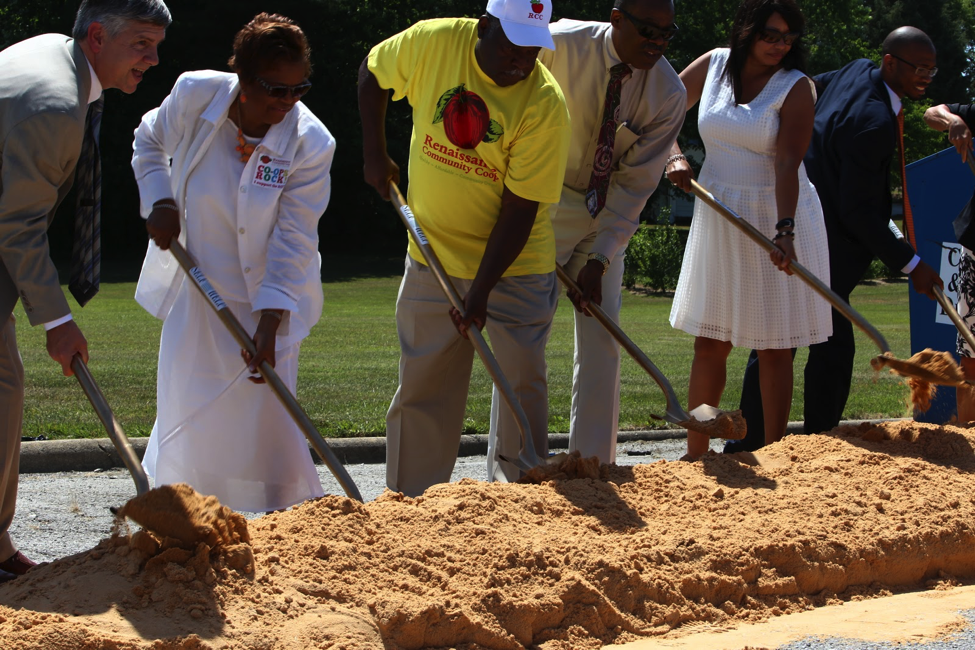
Renaissance Community Co-op, a full service cooperatively-owned grocery store similar to People’s Community Market, breaks ground in Greensboro, NC.
The PCM isn’t the only initiative of its kind looking holistically at systemic inequality, health, and community empowerment through the lens of food access. The Renaissance Community Co-op in Greensboro, North Carolina has been working for years to establish a democratically owned and controlled grocery store that provides healthy, affordable food as well as educational services to community members. And the previously mentioned Soul Fire Farm is working to end racism and injustice in the food system by cultivating a “deep reverence for the land and wisdom of our ancestors and working to reclaim our collective right to belong to the earth and to have agency in the food system.” By spanning multiple sectors and rooting their efforts in civic conversations, these endeavors embody Brown’s vision for a new system—a “Civic Economy of Provisions.”
_________________________________
Michelle Stearn writes for The Next System Project as part of the Democracy Collaborative team. Based in Washington, DC, Michelle’s work focuses on generating equitable and community-based food and energy systems. She is a co-founder of SPACE Lab, a collective of innovators bridging the gap between art and science by transforming spaces for creative learning and expression. To that end, she is working to establish a community biofuel laboratory in Southeast DC centered on youth empowerment and energy democracy.
Go to Original – thenextsystem.org
DISCLAIMER: The statements, views and opinions expressed in pieces republished here are solely those of the authors and do not necessarily represent those of TMS. In accordance with title 17 U.S.C. section 107, this material is distributed without profit to those who have expressed a prior interest in receiving the included information for research and educational purposes. TMS has no affiliation whatsoever with the originator of this article nor is TMS endorsed or sponsored by the originator. “GO TO ORIGINAL” links are provided as a convenience to our readers and allow for verification of authenticity. However, as originating pages are often updated by their originating host sites, the versions posted may not match the versions our readers view when clicking the “GO TO ORIGINAL” links. This site contains copyrighted material the use of which has not always been specifically authorized by the copyright owner. We are making such material available in our efforts to advance understanding of environmental, political, human rights, economic, democracy, scientific, and social justice issues, etc. We believe this constitutes a ‘fair use’ of any such copyrighted material as provided for in section 107 of the US Copyright Law. In accordance with Title 17 U.S.C. Section 107, the material on this site is distributed without profit to those who have expressed a prior interest in receiving the included information for research and educational purposes. For more information go to: http://www.law.cornell.edu/uscode/17/107.shtml. If you wish to use copyrighted material from this site for purposes of your own that go beyond ‘fair use’, you must obtain permission from the copyright owner.
